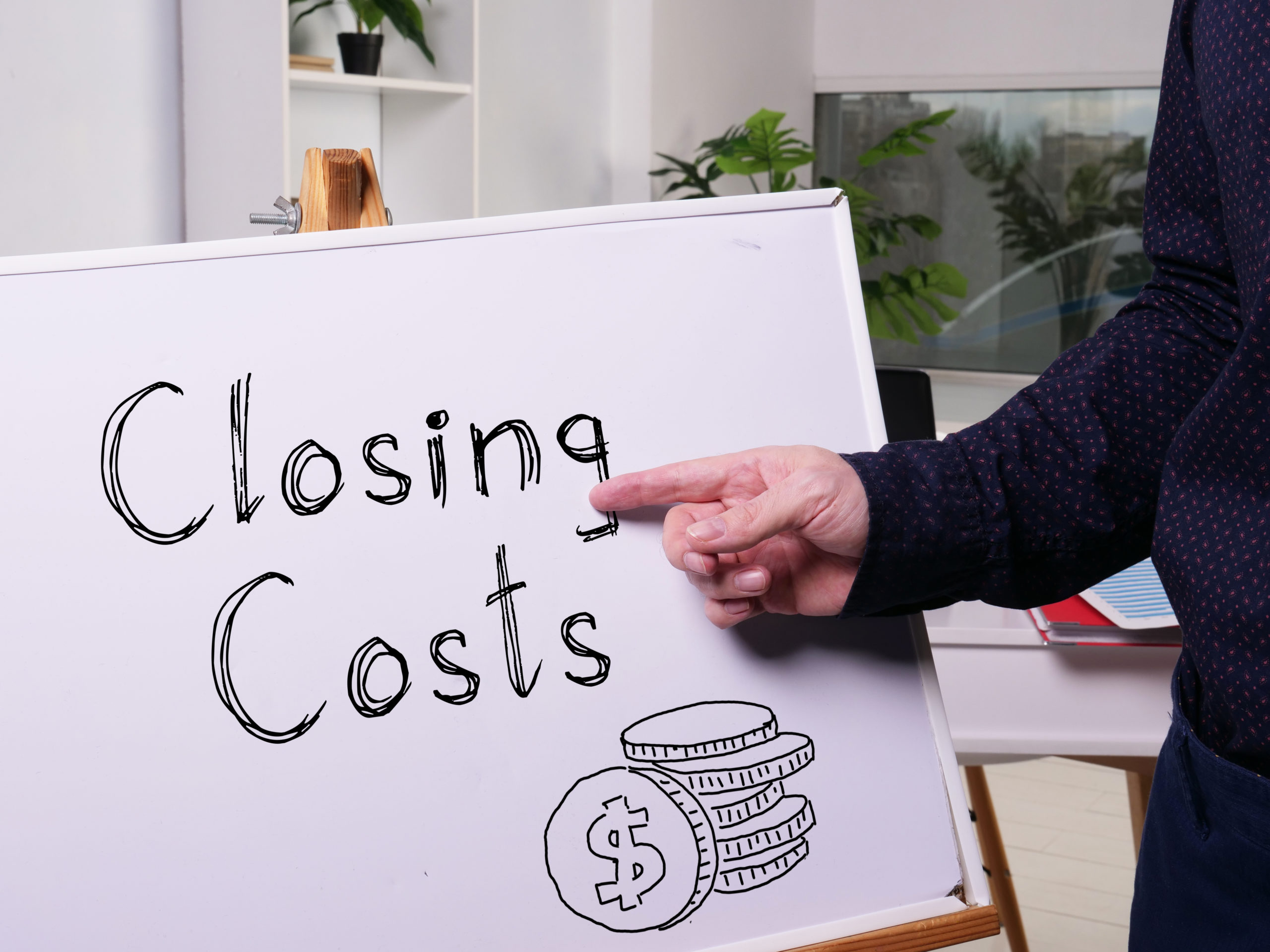When buying or selling a home, the topic of who pays closing costs is bound to come up eventually. Any real estate transaction will host numerous costs and fees that will be factored into the purchasing process on top of the property’s value. Understanding who is responsible for paying these fees is crucial for properly valuing the sale as the buyer or seller. Especially for those looking to budget their real estate experience carefully, closing costs can be an important factor when determining if a home is the best investment for your needs.
In this article, we’ll explore real estate closing costs to help homeowners and potential buyers better understand the process of finalizing a real estate transaction. We’ll also settle once and for all who usually pays closing costs: the buyer or the seller?
What are Closing Costs?
Closing costs are fees and expenses outside of a down payment that is paid once the buyer closes on a property. Closing costs can be a substantial portion of the real estate investment and can be as high as 3 to 5 percent of the down payment. These fees are calculated from numerous sources, from attorney fees to insurance costs. Each transaction’s closing costs will vary based on the property itself as well as the nature of how the transaction was arranged. The buyer and seller need to be aware of closing costs so that the point of escrow can run efficiently and according to the original listing agreement.
Does the Buyer or Seller Pay Closing Costs?
Now that we understand closing costs and their role in a real estate transaction, it’s time to dive into the logistics of buyer and seller responsibility. Buying a home is a huge investment and when selling a home it’s important to optimize profits during the transaction to get the most value out of the home. Closing costs allow the transition of ownership to go smoothly and guarantee that all parties involved, from the real estate listing service to the insurance companies, are properly compensated for the transaction. Generally speaking, the buyer is the party responsible for paying closing costs. However, the closing costs can look different for each transaction and the seller may be liable for other costs unrelated to the transaction itself.
Seller Closing Costs
So do sellers usually pay closing costs? Typically not. While the buyer of a property will generally have more items that require payment than the seller, this doesn’t indicate a complete lack of responsibility on the seller’s part. Especially for sellers who choose to leverage the payment of closing costs to quicken or simplify a sale, it can’t be assumed that the seller is getting off free within a successful transaction. The majority of individuals who sell their homes will do so with the assistance of a real estate agency, and the seller is responsible for paying the sales commissions to any real estate agents that helped the deal take place. This can be a significant portion of the sales price, so those selling their property need to factor this in when listing their home. Some other potential seller closing costs that may come up include:
- Potential Prorations: Before the buyers assume ownership, sellers might need to compensate buyers for taxes and HOA dues that are paid.
- Title Transfer/Insurance Fees: Sellers may need to pay regionally specific taxes or fees for the transfer of the property’s title or title insurance in the case of issues coming up.
- Home Warranty Premiums: Sellers will occasionally offer a home warranty for the first year to peak buyer interest.
Buyer Closing Costs
As we briefly stated, those looking to purchase a new home or property should anticipate financial liability for the majority of the costs associated with closing the deal. This is mainly due to the many steps that are taken to secure a loan for a home’s down payment, as well as the process of properly valuing a property. It’s important to note that these closing costs are not usually paid to one party but rather a collection of individuals that played a significant role in the purchase of the home and transfer of ownership. Some closing costs that buyers can anticipate during a real estate transaction include, but are not limited to:
- Attorney Fees: Closings that involve an attorney for the buyer, seller, or both will feature fees that typically fall on the buyer.
- Loan Origination Fees: Fees associated with processing and underwriting the loan, paid to the lender. This may include credit report fees that lenders will use to determine if you qualify for a mortgage. Lenders also might charge an optional fee in exchange for lower interest rates during the lifespan of the loan.
- Appraisal Fees: Appraisals are strongly suggested to verify the sale price of the property is a fair one to pay,
- Inspection Fees: Some lenders might require an inspection before a loan can be approved for a mortgage. This may include survey fees, which confirm the size and dimensions of the property’s land.
- Title Insurance: While the seller pays the title insurance costs, for a lender to be protected the buyer will usually need to assume the policy. Title search fees may also be needed for background checks conducted on the title to identify concerning liens for the property.
- Escrow Deposits: Lenders might ask for a pre-payment of a few months of property taxes or insurance for financial comfort within the loan’s account.
- Record Fees: Every real estate transaction needs to be recorded within local records. These fees are usually paid directly to the property’s city or county.
Who Can Pay Closing Costs?
While the majority of financial items that fall under the umbrella of “closing costs” tend to lean to the buyer’s side, each real estate transaction is different and closing costs can be easily adjusted. Many sellers will assume responsibility for a portion of the closing costs as an incentive for interest or to expedite the sale of their property. Negotiation of closing costs is fairly common but should always be calculated towards the beginning of the real estate transaction to ensure no one gets blindsided down the line.
Closing costs can be leveraged by both sides of the transaction to make the process of paying them a bit less overwhelming for the buyer. Some buyers will even make their initial offers with buyer closing costs factored within a purchase price which could lead to the seller negotiating an alternate deal. Closing costs can be an incredibly expensive stage of the real estate transaction, and buyers might be surprised by how many sellers are willing to negotiate these figures for the sake of a simple and streamlined real estate experience.
Sell Your Home Fast with Help from CT Homes!
Whether you’re a first-time homebuyer or you’re simply looking to maximize an investment’s value, understanding who usually pays closing costs is a major part of conducting any successful real estate transaction. By properly anticipating what costs will be incurred and delegating these as negotiated, the process of buying and selling a home can become much simpler. CT Homes can help sellers list their property and have a care-free real estate experience. With cash offers that help sellers move on to the next great investment quickly, CT Homes can expedite the process of selling your home. Contact CT Homes today to learn more.






